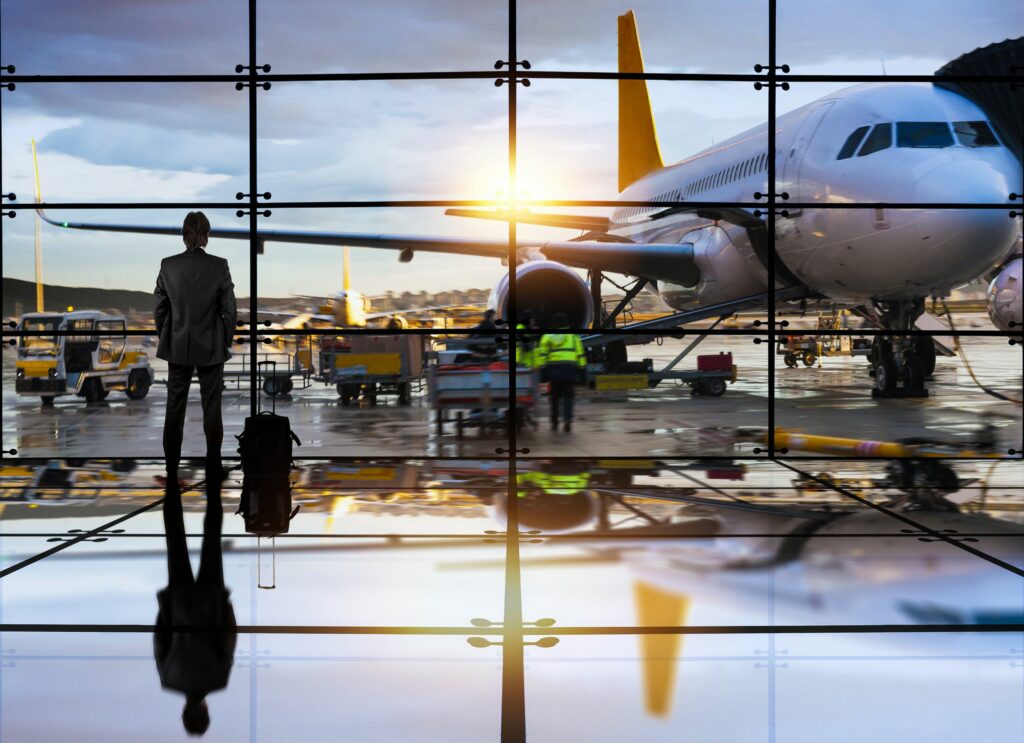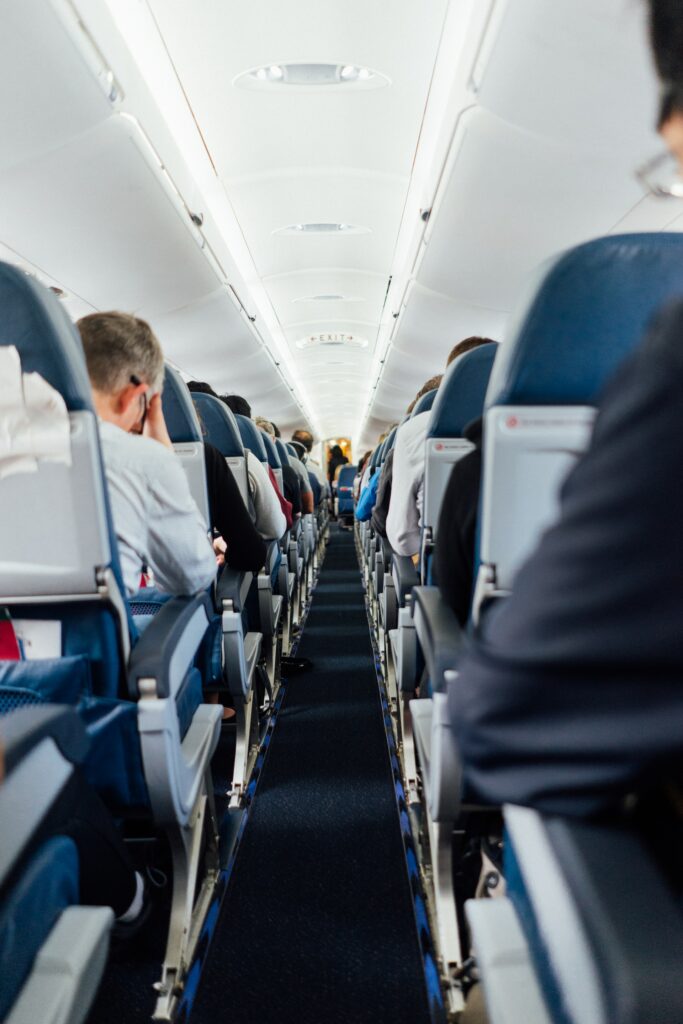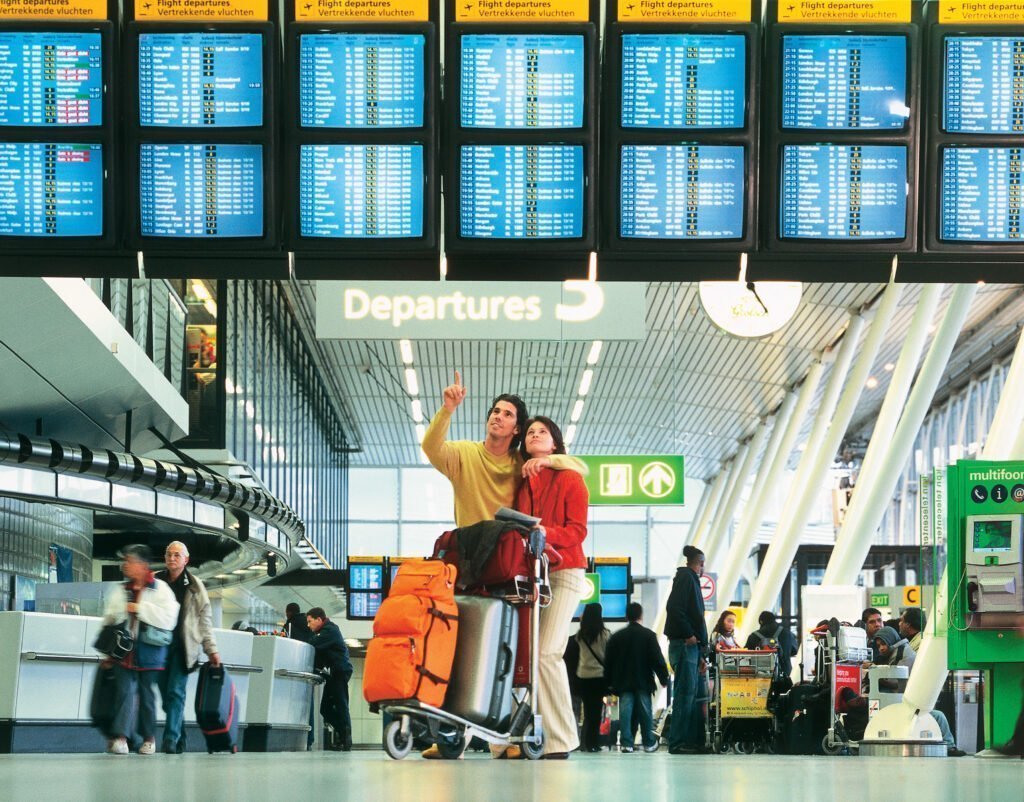Travelling Light? To Check or Not to Check your Bags

Each year, we see a growing number of global travellers, with social media influencers and frequent flyers leading the change. Fuelled by the desire for the perfect Instagrammable moment, they have turned the travel industry on its head. An often overlooked part of this global movement is the luggage that accompanies these travellers. An increasingly popular travel mantra is, “Never check a bag.” But as we become more conscious of our carbon footprint, it might be time to question if this approach is as eco-friendly as it is convenient.

According to a 2022 report by the International Air Transport Association (IATA), airlines worldwide carried a staggering 4.5 billion bags in checked luggage in 2021. This figure may seem astounding, but it’s even more impressive when considering that it doesn’t include the countless number of carry-on bags that travel with us in the aircraft cabin.
When examining the environmental impact of our luggage choices, we must first understand how air travel contributes to global carbon emissions. The aviation industry accounted for 2.4% of total CO2 emissions globally in 2019, as reported by the Air Transport Action Group. While this might not seem like a significant figure, it translates into roughly 915 million tonnes of CO2. Therefore, anything we can do to reduce this figure can have a substantial impact on our environment.
It’s well known that heavier planes require more fuel to operate, resulting in increased CO2 emissions. Extra weight equates to higher fuel consumption, which, in turn, contributes to a larger carbon footprint. This means our decisions around packing, both in terms of quantity and the choice between checked luggage and carry-ons, are more impactful than we might initially realize.
Contrary to popular belief, packing lighter and avoiding checked baggage doesn’t necessarily reduce your carbon footprint. The logic seems sound; after all, less weight should mean less fuel, right? Unfortunately, it’s not that simple. In a recent study by the Massachusetts Institute of Technology (MIT), researchers found that the distribution of weight in an airplane can significantly affect fuel efficiency. It turns out that storing luggage in the cargo hold is more fuel-efficient than stowing it in the overhead bins, primarily because of the balance it provides to the plane.


This study suggests that the growing trend of packing carry-on only could inadvertently increase CO2 emissions. If everyone on board a Boeing 747, for instance, decided to check their bags instead of taking them into the cabin, CO2 emissions could be reduced by up to 0.5% per flight. While this might not seem like a big number, consider the hundreds of thousands of flights that take off every day; the reduction in emissions could be significant.
The popularization of compact, carry-on friendly luggage has given rise to the ‘rollerboard revolution.’ These hard-shell, wheeled suitcases are heavier than the soft-sided carry-on, even when empty. This trend further contributes to the increase in CO2 emissions.
This revelation presents an opportunity for airlines and passengers alike to rethink their luggage strategies. Perhaps we should reconsider the hidden environmental costs of avoiding checked baggage and instead advocate for smarter, more mindful packing strategies. Remember, small solution counts when it comes to reducing our carbon footprint.
As we continue to explore the world, we should remember that our choices, including our packing decisions, can contribute to the overall environmental impact of our travel. While checking luggage might seem like a hassle, it could be a small price to pay for a healthier planet. As they say, the greatest journey starts with a single step. So why not let that step be towards sustainable travel choices? And who knows, the “influencers” who are bragging about their travels, could see the real picture, beyond Instagram posts.
Do you want to share your story and inspire our readers ? Know that every story is paving the way for a brighter, happier future.





